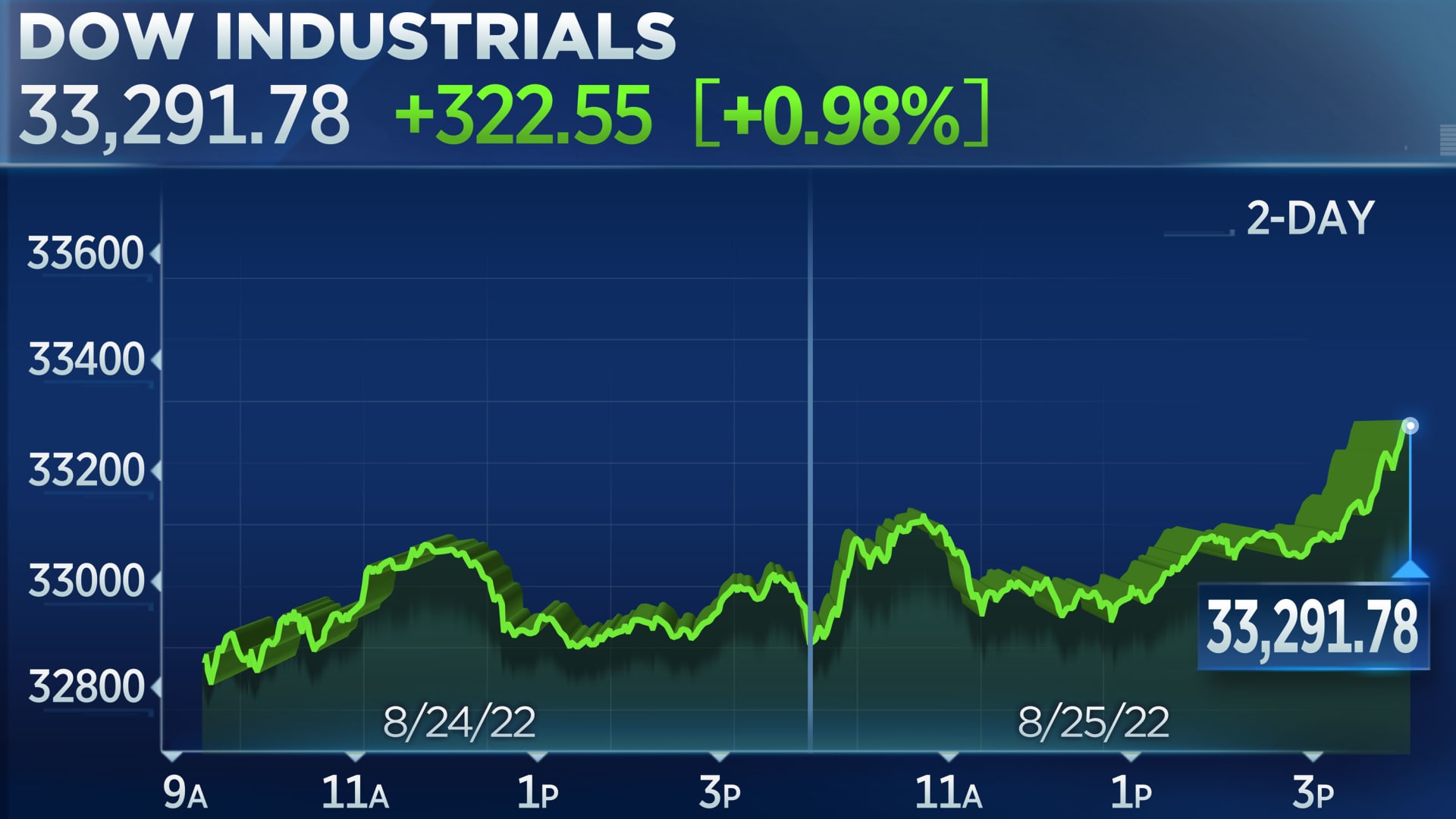The Dow Jones: Your Ultimate Guide To Understanding This Financial Titan
When you hear "The Dow Jones," you’re probably thinking about Wall Street, stock markets, and big money moves. But what exactly is The Dow Jones, and why should you care? Well, buckle up, because we’re diving deep into this financial powerhouse that shapes the global economy. Whether you're a seasoned investor or just starting out, The Dow Jones is more than just a number on your screen—it’s a reflection of the health of the entire U.S. economy. So, let’s break it down in a way that makes sense, even if you’re not a finance guru.
Imagine The Dow Jones as the pulse of the stock market. It’s like a scoreboard that tells you how well the biggest companies in America are doing. If The Dow Jones is up, it means things are looking good. If it’s down, well, there might be some trouble brewing. But here’s the thing—it’s not just a random collection of numbers. It’s carefully crafted to give you a snapshot of the economy, and understanding it can help you make smarter financial decisions.
Now, if you’re wondering why this matters to you, think about it this way: The Dow Jones affects everything from your retirement savings to the cost of goods you buy every day. So, whether you’re a stock market enthusiast or just someone who wants to understand the world better, this guide is for you. Let’s get into it and uncover the secrets behind The Dow Jones.
- Long To Short Haircut Is It Right For You Transformations
- Best Dog Deshedding Tools Furminator More For A Furfree Home
What Exactly is The Dow Jones?
The Dow Jones Industrial Average, often shortened to just "The Dow," is one of the oldest and most widely followed stock market indexes in the world. First introduced in 1896 by Charles Dow, it tracks the performance of 30 large, publicly traded companies in the United States. These companies represent a diverse range of industries, from technology to consumer goods, and their combined performance gives us a snapshot of the overall health of the U.S. economy.
Here’s the thing about The Dow—it’s not just any index. It’s a barometer of investor confidence, and when it moves, people pay attention. For example, if The Dow drops sharply, it could signal that investors are worried about the economy. On the flip side, if it rises, it might mean that people are feeling optimistic about the future. But how does it work? Let’s break it down further.
How The Dow Jones Works
The Dow Jones Industrial Average is calculated using a price-weighted formula. This means that companies with higher stock prices have a bigger influence on the index than those with lower prices. To give you an idea, a company like Apple, with a high stock price, will have more weight in The Dow than a company like Walmart, even though Walmart might have a larger market capitalization.
- Royal News King Charles Attends Event Solo Queens Absence Explained
- Get The Look Taylor Swift Eras Tour Midnights Outfits Style
But why use a price-weighted system? Well, it’s all about simplicity. By focusing on stock prices, The Dow gives investors a clear and straightforward way to track market performance. Of course, this method isn’t perfect—it can sometimes skew results if a single company’s stock price spikes or plummets. But overall, it’s a reliable indicator of how the market is doing.
The Components of The Dow Jones
So, who’s in The Dow? The 30 companies that make up the index are carefully selected by a committee, and they represent a wide range of industries. Some of the big names you might recognize include:
- Apple
- Microsoft
- Walmart
- Coca-Cola
- McDonald’s
These companies are chosen because they’re leaders in their respective industries, and their performance is seen as a reflection of the broader economy. But here’s the kicker—the companies in The Dow can change over time. If a company’s performance declines or if a new company emerges as a leader, the committee might swap them out to keep the index relevant.
Why Should You Care About The Dow Jones?
Here’s the deal: The Dow Jones isn’t just for Wall Street traders and financial analysts. It affects everyone, whether you realize it or not. For example, if you have a retirement account or an investment portfolio, chances are your money is tied to the performance of The Dow in some way. When The Dow does well, your investments are likely to grow. But if it tanks, your savings could take a hit.
Even if you’re not an investor, The Dow can still impact your daily life. If the index is down, it might mean that companies are cutting jobs or reducing wages. On the other hand, if it’s up, it could signal that businesses are expanding and hiring. So, paying attention to The Dow can give you insights into where the economy is headed.
How The Dow Affects the Economy
The Dow Jones is more than just a number—it’s a reflection of the overall health of the U.S. economy. When The Dow is strong, it often means that businesses are thriving, consumers are spending, and the job market is robust. But when it’s weak, it could signal that the economy is slowing down or even heading into a recession.
For example, during the 2008 financial crisis, The Dow plummeted as investors lost confidence in the market. This drop had a ripple effect, leading to job losses, foreclosures, and a general slowdown in economic activity. On the flip side, during the tech boom of the late 1990s, The Dow soared, driving innovation and creating new opportunities for businesses and workers alike.
Historical Performance of The Dow Jones
Let’s take a trip down memory lane and look at some of the key moments in The Dow’s history. Since its inception in 1896, The Dow has seen its fair share of ups and downs. Here are a few highlights:
- In 1929, The Dow crashed, marking the start of the Great Depression.
- In 1987, The Dow experienced its biggest one-day drop, known as Black Monday.
- In 2008, The Dow plummeted during the financial crisis, but it eventually rebounded.
- In 2017, The Dow surpassed the 20,000 mark for the first time.
These events show just how volatile the stock market can be, but they also demonstrate The Dow’s resilience. Despite setbacks, it has consistently recovered and reached new highs over time.
Key Trends in The Dow’s Performance
Over the years, The Dow has shown some interesting trends. For one, it tends to rise during periods of economic growth and fall during times of uncertainty. It’s also become more diversified over time, with the addition of tech companies like Apple and Microsoft. This diversification has helped The Dow stay relevant in a rapidly changing world.
But here’s something to keep in mind: The Dow isn’t always a perfect predictor of the economy. Sometimes, it can rise even when the broader economy is struggling, or it can fall when things are actually improving. That’s why it’s important to look at other indicators, like unemployment rates and GDP growth, to get a complete picture of the economy.
The Future of The Dow Jones
So, where is The Dow headed? Well, that’s the million-dollar question. While no one can predict the future with certainty, there are a few things we can expect. For one, The Dow is likely to continue evolving as new industries emerge and old ones decline. We might see more tech companies added to the index, reflecting the growing importance of digital innovation.
Another trend to watch is globalization. As the world becomes more interconnected, The Dow could start including companies from outside the U.S., giving investors a broader view of the global economy. Of course, there will always be challenges, like economic downturns and geopolitical tensions, but The Dow has proven time and again that it can weather the storm.
How to Invest in The Dow Jones
If you’re interested in investing in The Dow, there are a few ways to do it. One option is to buy shares in the companies that make up the index. This gives you direct exposure to The Dow’s performance, but it can be risky if one or two companies underperform.
Another option is to invest in exchange-traded funds (ETFs) or mutual funds that track The Dow. These funds offer diversification, which can help reduce risk. Plus, they’re easy to buy and sell, making them a popular choice for investors of all levels.
Common Misconceptions About The Dow Jones
There are a few myths about The Dow Jones that we need to clear up. For starters, some people think that The Dow represents the entire stock market, but that’s not true. It only tracks 30 companies, so it’s not a comprehensive measure of market performance. Another misconception is that The Dow always reflects the health of the economy. While it’s a good indicator, it’s not the only one you should rely on.
Finally, some people believe that The Dow is only relevant for big investors. In reality, it affects everyone, from retirees to small business owners. Understanding The Dow can help you make informed decisions about your finances, no matter your level of expertise.
How to Stay Informed About The Dow Jones
Staying up-to-date on The Dow Jones is easier than ever, thanks to technology. You can follow financial news websites, subscribe to newsletters, or even download apps that give you real-time updates on the index. Social media platforms like Twitter and LinkedIn are also great resources for staying informed about market trends.
But here’s a tip: don’t get too caught up in the day-to-day fluctuations. The Dow can be volatile, and obsessing over short-term changes can lead to bad decision-making. Instead, focus on the long-term trends and how they align with your financial goals.
Conclusion: Why The Dow Jones Matters to You
To wrap it up, The Dow Jones is more than just a number—it’s a powerful tool for understanding the economy and making smart financial decisions. Whether you’re an experienced investor or just someone who wants to stay informed, The Dow can provide valuable insights into the state of the market.
So, what’s next? If you’ve found this guide helpful, why not share it with your friends or leave a comment below? And if you’re ready to dive deeper into the world of finance, check out some of our other articles for more tips and insights. Remember, knowledge is power, and The Dow Jones is just one piece of the puzzle when it comes to building a secure financial future.
Table of Contents
- What Exactly is The Dow Jones?
- How The Dow Jones Works
- The Components of The Dow Jones
- Why Should You Care About The Dow Jones?
- How The Dow Affects the Economy
- Historical Performance of The Dow Jones
- Key Trends in The Dow’s Performance
- The Future of The Dow Jones
- How to Invest in The Dow Jones
- Common Misconceptions About The Dow Jones



Detail Author:
- Name : Miss Rachael Schowalter
- Username : carroll.mattie
- Email : erwin82@swift.com
- Birthdate : 1990-01-07
- Address : 1793 Jimmy Center Apt. 291 Lake Harold, SC 91570
- Phone : +1.623.849.7358
- Company : Glover-Hermann
- Job : Admin
- Bio : Eligendi veritatis enim nulla fugiat neque enim cupiditate omnis. Et suscipit nesciunt mollitia ut reprehenderit ut est pariatur.
Socials
facebook:
- url : https://facebook.com/swaniawski1975
- username : swaniawski1975
- bio : Exercitationem est at at quo.
- followers : 1875
- following : 2363
instagram:
- url : https://instagram.com/ellieswaniawski
- username : ellieswaniawski
- bio : Nobis veniam minima rem architecto. Est atque magnam officiis molestias magni illo.
- followers : 4669
- following : 2252